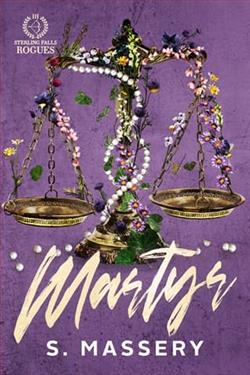Page 142 of How to Walk Away
“I don’t need you to cheer me on, okay?”
I gave another shrug. “Too late.”
My read on the situation at this point: Chip was mostly puzzled, and pitying, and jumping to conclusions about my motivations. But his brand-new wife was only one thing: furious.
“Look,” I said to them both, “I wish you both well, okay? I am not pathetically stalking you. I’ve moved on.”
But neither of them believed me.
That’s when Statler called out from the next row of seats back, “Here to ruin the wedding, huh, Jacobsen?”
It was a joke, of course—meant, no doubt, to deflate the tension—but I suddenly realized that’s what they all must have been thinking: that I’d come here with tragic, ridiculous hopes of sabotaging the wedding.
“I’m just here to celebrate,” I said, lifting my hands in surrender.
But Statler just laughed. I was clearly a broken ex making one lastdesperate attempt to—what? Roll off with the groom?There could be no other explanation. Fair enough. Out of context, flying three thousand miles to your ex’s wedding might seem a little suspicious.
Before I knew it, I was trying to make them understand.
“It’s been a rough year,” I found myself announcing then, to Statler, and the happy couple, and the whole damned boat. “It’s not the life I would have chosen,” I went on, “and parts of it are absolutely brutal. But there are upsides, too. I’m wiser. I’m kinder. I’ve taken up knitting.”
They couldn’t possibly get it. Some kinds of wisdom can only be earned. I should have dropped the whole thing right then. But I just needed to stand up for myself.
“I am building a summer camp,” I said next, “and I’ve started my own nonprofit, and I’m as busy and happy and productive as I’ve ever been. I’ve found my calling. I’ve found work that’s so satisfying and thrilling, I wish I didn’t even have to sleep.”
I read their faces. They weren’t convinced.
But it was okay.
Needing to find reasons to live had forced me to build a life worth living. I would never say the accident was a good thing. I would never, ever claim that everything happens for a reason. Like all tragedies, it was senseless.
But I knew one thing for sure: The greater our capacity for sorrow becomes, the greater our capacity for joy.
So I went on, “That’s the thing you don’t know—that youcan’tknow until life has genuinely beaten the crap out of you: I am better for it all. I am better for being broken.”
The truth of it both steadied me and left me a little shaky.
It felt like a real triumph.
Until Chip’s bride gave me a look, like,Please.
Chip didn’t seem too convinced, either. “You’re saying you’ve moved on?”
Ugh. “Yes.”
His eyes were like dares. “Does that mean,” he asked, “that you’re seeing somebody?”
Seriously? Was this the only definition of moving on? Was there no way to get better or be happy or live a great life that did not involvedating? Was being in love the only kind of happiness out there? I took offense at the question on feminist principle. I felt tempted to lecture him all night on the ways that women’s lives did not need to be validated romantically by a man. Ridiculous! Narrow-minded! Conventional!
I almost said so. One more second, and I would have.
Twenty-nine
BUT THAT’S WHENwe all heard a person shout, “Wait! Hold the boat!”
At the sound, I noticed that the guys on the dock had already untied the ropes, and we were starting to motor away.
We turned in the direction of the voice, and one of the dockworkers shouted, in Flemish, what I presumed was “Hold up! One more!”















